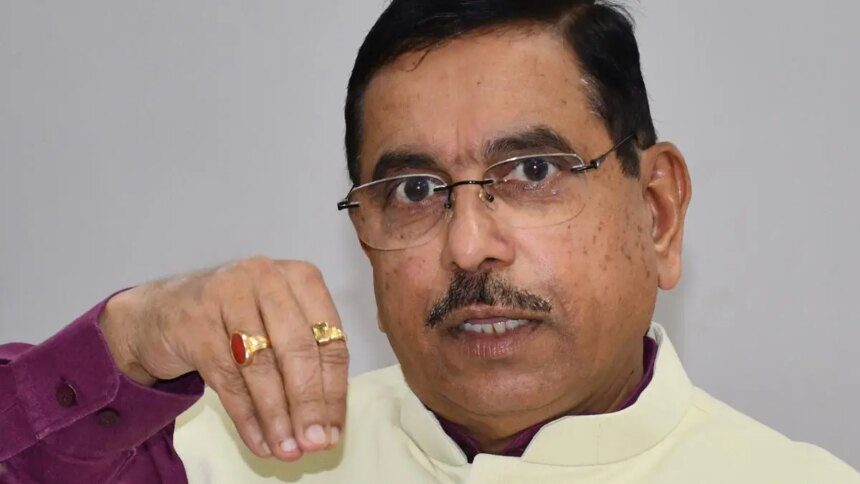India’s Food Minister Pralhad Joshi rejected a demand for wheat exports on Wednesday, stating that such requests would be evaluated only after the arrival of the new crop next year. He clarified that there are no current plans to permit the export of wheat products.
During the annual general meeting of the Roller Flour Millers’ Federation of India in New Delhi, Joshi urged the industry to enhance the area dedicated to wheat cultivation due to the steadily increasing demand.
Navneet Chitlangia, President of the Association, noted that while the export of wheat flour (atta) is currently allowed under the Advance Import Authorization scheme, it is time to permit phased exports of wheat products. He proposed starting with a minimum quantity of 1 million tonnes to access global markets while ensuring domestic needs are met.
Chitlangia argued that allowing wheat products to be exported freely would enable the industry to capitalise on global markets, provide better prices for farmers, and establish India as a reliable global supplier. He pointed out that while Indian wheat is not currently competitively priced—being $80-90 per tonne more expensive than global prices—there is a particular demand for wheat products among the Indian diaspora overseas.
Joshi acknowledged the involvement of multiple ministries in export decisions and emphasized that the government must factor in next year’s wheat production, which is expected to be harvested from April 2026. He reiterated that food security remains the top priority, stating, “You are asking for export. We will see. We cannot assure as our top priority is food security.” He also mentioned, “there is no plan for now to allow export of atta.”
India, recognized as the world’s second-largest wheat producer, imposed a ban on wheat and wheat product exports in 2022 due to declining yields, reduced government procurement, and rising inflation. The Agriculture Ministry’s projections for the 2024-25 season anticipate record wheat production of 117.51 million tonnes.
The federation called on the central government to maintain sufficient stock levels to facilitate timely interventions and ensure price stability, arguing that government reserves are crucial for market stabilization. Chitlangia requested long-term clarity on the government’s Wheat Policy, specifically regarding the open market sale scheme (OMSS).
When questioned about the push to increase buffer stock, he suggested that it should cover one year of requirements for the public distribution system (PDS), estimated at 18 million tonnes. Additionally, the flour millers’ federation requested a thorough investigation into the effects of Dried Distillers Grains with Solubles (DDGS) on cattle health and milk quality. They also advocated for the elimination of the 5% GST on household consumer packs of atta, maida, and suji (up to 25 kg) and a reduction of GST from 18% to 5% for flour milling machinery and wheat storage silos.
Published on September 24, 2025.










